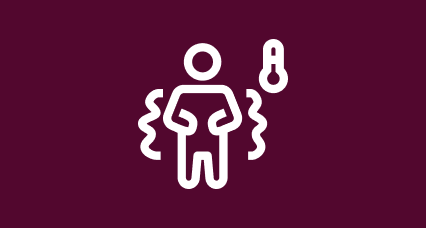Chronic LGLL
Around 240 people in the UK are diagnosed with LGLL each year, with most of these having chronic LGLL.

What is chronic LGLL?
Around 95% of people with LGLL have a chronic form of LGLL. This means it is a slow growing type of leukaemia.
Chronic LGLL explained

Chronic LGLL prognosis
Although it’s not possible to cure chronic LGLL, most people who have treatment generally respond well and have a good quality of life.
Find out more

Symptoms and diagnosis
Chronic LGLL develops very slowly, so can take a while for symptoms to show. Many people won't have any at all.
Symptoms you may have

Treatment and side effects
Chronic LGLL cannot be cured, but it is treatable in most people. The aim of treatment is to minimise the symptoms of LGLL and put you into remission.
Read more
Thank you to Consultant Haematologist Dr Adrian Bloor and Consultant Haemato-Oncologist Dr Samir Agrawal for checking our information on LGLL.
